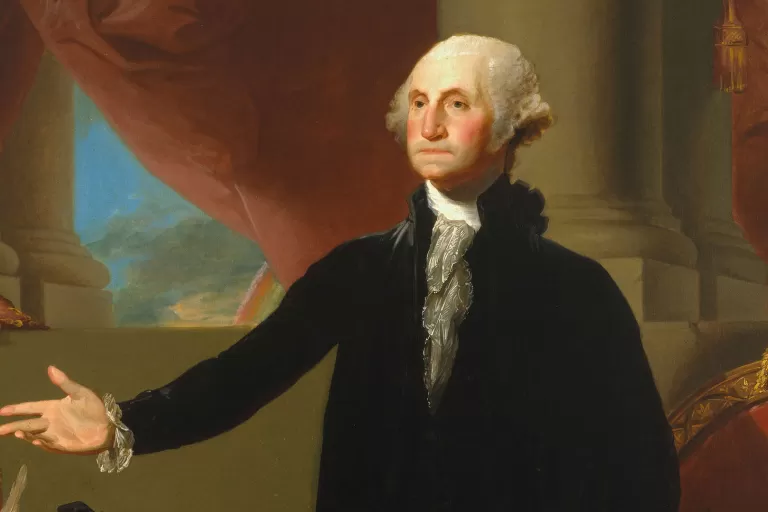
The Lord Jesus once said, “If you continue in my word, then are ye my disciples, and you shall know the truth and the truth shall make you free.” (John 8: 31-32) Religion and political freedom are inseparable principles. The Exodus of Moses and the Israelites attest to that. So in that spirit, and in the spirit of Presidents’ Day, may I quote a portion of President George Washington’s farewell address delivered September the 17th, 1796? He said:
“Of all dispositions and habits which lead to political prosperity, religion and morality are indispensable supports. In vain would that man claim the tribute of patriotism, who should labor to subvert these great pillars of human happiness, these firmest props of the duties of men and citizens. The mere politician, equally with the pious man, ought to respect and cherish them. A volume could not trace all their connections with public and private felicity. Let it simply be asked, where is the security for property, for reputation, for life, if the sense of religious obligation desert the oaths which are the instruments of investigation in courts of justice? And let us with caution indulge the supposition that morality can be maintained without religion. Whatever may be conceded to the influence of refined education on minds of peculiar structure, reason and experience both forbid us to expect, that national morality can prevail in exclusion of religious principle.”
And again, on the 19th of November 1863, the words of Abraham Lincoln called the Gettysburg address, if you wouldn’t mind:
“Four score and seven years ago our fathers brought forth on his continent, a new nation, conceived in Liberty, and dedicated to the proposition that all men are created equal.
“Now we are engaged in a great civil war, testing whether that nation, or any nation so conceived and so dedicated, can long endure. We are met on a great battle-field of that war. We have come to dedicate a portion of that field, as a final resting place for those who here gave their lives that that nation might live. It is altogether fitting and proper that we should do this.
“But, in a larger sense, we can not dedicate, we can not consecrate, we can not hallow – this ground. The brave men, living and dead, who struggled here, have consecrated it, far above our poor power to add or detract. The world will little note, nor long remember what we say here, but it can never forget what they did here. It is for us the living, rather, to be dedicated here to the unfinished work which they who fought here have thus far so noble advanced. It is rather for us to be here dedicated to the great task remaining before us – that from these honored dead we take increased devotion to that cause for which they gave the last full measure of devotion – that we here highly resolve that these dead shall not have died in vain – that this nation, under God, shall have a new birth of freedom – and that government of the people, by the people, for the people, shall not perish from the earth.”
Story Credits
Glenn Rawson – February 1998
Music: Majesty – Music for the Sabbath, track 12 (edited) – Merrill Jenson
Song: Battle Hymn of the Republic – Mormon Tabernacle Choir

